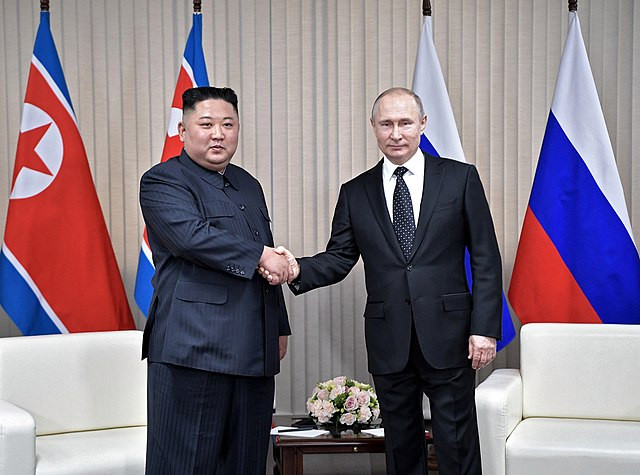North Korea has intensified its support for Russia's military campaign in Ukraine by deploying thousands of soldiers and supplying advanced artillery systems, further solidifying the burgeoning alliance between Moscow and Pyongyang. Among those sent to Russia is Colonel General Kim Yong Bok, a senior military figure and close aide to North Korean leader Kim Jong Un, whose presence underscores the strategic depth of North Korea's involvement in the nearly three-year-long conflict.
Colonel General Kim, one of the ten most important figures in North Korea's military hierarchy, has taken charge of integrating North Korean forces with Russian units. This deployment, which includes over 11,000 troops, is aimed at strengthening Russia's frontline capabilities while providing North Korea with invaluable combat experience to bring back to its own forces. The move comes after Russian President Vladimir Putin's visit to Pyongyang in June, where the two nations signed a mutual defense pact, signaling a significant shift in North Korea's foreign policy.
Kim's emergence on the global stage marks a stark departure from his previously shadowy career. Known for leading North Korea's special forces, his role required him to maintain a low profile. "Col. Gen. Kim Yong Bok was rarely seen-or even mentioned-in public," reported the Wall Street Journal. Now tasked with a high-profile role in Russia, Kim's deployment reflects North Korea's willingness to publicly back Moscow in its confrontation with Ukraine and the West.
South Korea's National Intelligence Service (NIS) reported in a closed-door briefing that North Korea has also provided Russia with heavy artillery systems, including 170mm self-propelled guns and 240mm multiple rocket launchers. These weapons, not commonly used by Russia, required North Korean personnel to train Russian troops on their operation and maintenance. Recent images on Russian social media platforms showed North Korean "Koksan" 170mm self-propelled guns being transported by rail, corroborating reports of large-scale weapons transfers.
The NIS disclosed that North Korean troops have been stationed in the Kursk region of Russia, where Ukrainian forces have recently gained ground. Some of these soldiers have already engaged in combat alongside Russian marine and airborne units. While exact casualty figures remain unknown, the presence of North Korean troops on the battlefield marks a significant escalation in the conflict and highlights Pyongyang's readiness to take a direct role in supporting its ally.
The timing of this increased cooperation has raised alarm among Western nations. The United States recently approved the use of U.S.-made long-range ATACMS missiles by Ukraine, which were employed last week in a strike on a Russian ammunition depot in Bryansk. Moscow has reacted furiously to this decision, accusing Washington of prolonging the conflict. Kremlin spokesperson Dmitry Peskov criticized the Biden administration, stating that it is "fully determined to prolong the war in Ukraine."
Observers have pointed out the mutual benefits of the Russia-North Korea partnership. For Moscow, North Korean troops and weapons provide much-needed reinforcements and resources as its stockpiles dwindle. For Pyongyang, the deployment offers an opportunity to strengthen its military through real-world combat experience and closer ties with a powerful ally.
Colonel General Kim's role also reflects North Korea's broader strategic goals. Previously, Kim accompanied Kim Jong Un during inspections of special forces training and artillery exercises, reinforcing his position as a key figure in Pyongyang's military strategy. His deployment to Russia signals a continuation of this strategy, leveraging Russia's war effort to enhance North Korea's own military capabilities.
The Biden administration has condemned North Korea's actions and pledged continued support for Ukraine. U.S. officials have emphasized that North Korea's involvement could destabilize the region further, warning of the broader implications of its alliance with Russia. Ukrainian officials, meanwhile, continue to call for more advanced weaponry to counter the combined forces of Russia and North Korea.




